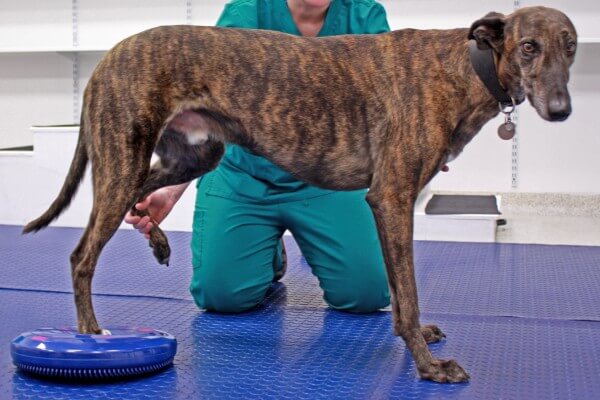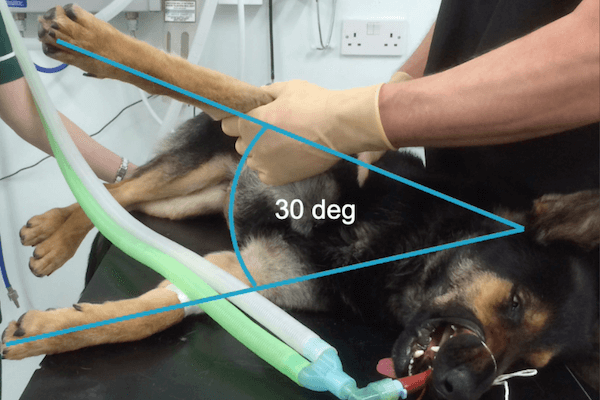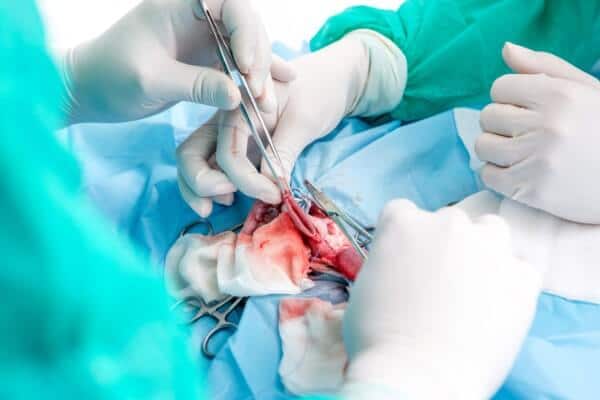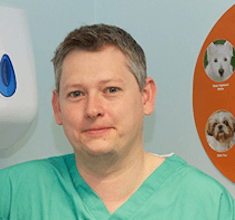Subject Surgery
april

Course Details
Week 1 Physiotherapy Toolkit (Modalities) Electrotherapies Therapeutic hot/cold packs Manual therapies Applied exercise therapies Learning objectives After completion of this week, participants should be able to: Understand the principles and application
Course Details
Week 1
Physiotherapy Toolkit (Modalities)
Electrotherapies
Therapeutic hot/cold packs
Manual therapies
Applied exercise therapies
Learning objectives
After completion of this week, participants should be able to:
Understand the principles and application of electrotherapy including:
K-laser
Transcutaneous electrical nerve stimulation (TENS)
Neuromuscular electrical stimulation (NMES)
Pulsed magnetic therapy (Biomag)
Therapeutic ultrasound
Understand the use of therapeutic hot/ cold packs
Understand manual therapy and its application including:
Massage
Effleurage
Coupage
Joint mobilisations
Graded stretches
Understand applied exercise therapy including:
Strengthening and stabilising exercises
Balance and proprioceptive exercises
Functional exercises
Hydrotherapy
Week 2
Patient Assessment
Musculoskeletal patient assessment
Neurological patient assessment
Respiratory / critical care patient assessment
Learning objectives
After completion of this week, participants should be able to:
Carry out a basic musculoskeletal, neurological, and respiratory physiotherapy assessment
Understand valid outcome measures to guide patient treatment
How to write SOAP (subjective, objective, analysis, plan) notes to progress patient treatment
Week 3
Physiotherapy and Hydrotherapy Treatment Techniques
Early phase rehabilitation 0-2 weeks
Mid phase rehabilitation 2-6 weeks
Late phase rehabilitation 6-12 weeks
Patient discharge or maintenance physiotherapy programme
Learning objectives
After completion of this week, participants should be able to:
Carry out early physiotherapy treatment including:
Early manual therapy techniques
Early phase hot and cold pack treatment
Early electrotherapies to improve healing and for pain relief
Mid phase gentle exercise programmes including hydrotherapy
Late phase exercise therapy to include advanced strengthening, proprioceptive, balance and functional exercises
Late phase electrotherapies for pain relief, soft tissue injuries and muscle strengthening
Week 4
Physiotherapy Progression Plans and Home Exercise Programmes
Patient rehabilitation plans
Discharge and maintenance programmes
Home exercise plans
Learning objectives
After completion of this week, participants should be able to:
Learn how and when to progress patient plans from early to mid through to late stage rehabilitation to optimise patient outcomes
Understand when to discharge a patient, or to continue with a maintenance programme for chronic cases or surgical complications
Design home exercise programmes for owners to carry out
Week 5
Musculoskeletal Case Studies
CCL reconstruction – TPLO or lateral suture
Soft tissue injuries (tendinopathies, iliopsoas strains)
Fracture repair
Conservative management of chronic conditions, including hip dysplasia and elbow dysplasia
Learning objectives
After completion of this week, participants should be able to:
Consider appropriate assessment, treatment plan and progression of a musculoskeletal case study
Consider appropriate assessment, treatment plan and progression of a soft tissue case study
Consider appropriate assessment, treatment plan and progression of a fracture repair case study
Consider appropriate assessment, treatment plan and progression of a chronic condition case study
Week 6
Neurological and Respiratory (Intensive Care) Case Studies
Hemi- laminectomy (HLE)
Fibrocartilage embolism (FCE)
Pneumonia
Learning objectives
After completion of this week, participants should be able to:
Consider appropriate assessment, treatment plan and progression of a surgical neurological case study
Consider appropriate assessment, treatment plan and progression of a non-surgical case study
Consider appropriate assessment, treatment plan and progression of a respiratory (critical care) case study
This course will be fully tutored by Donna Carver, and will consist of 15 hours of CPD given in various formats, including tutorials, tasks, case studies, forum discussions and quizzes. This course is tutored for 6 weeks, followed by a two week extension of untutored ‘catch up’ time, before the course officially ends.
All delegates will then have unlimited lifetime access to the learning material for future reference
Time
April 29 (Monday) - June 7 (Friday)
Location
Online
Speaker
Donna CarverBSC(Hons) Physiotherapy, DipAVN (Surgical), RVN, MCSP Pain & Rehabilitation Service, Glasgow Veterinary School
may

Course Details
Week 1 Physiotherapy Toolkit (Modalities) Electrotherapies Therapeutic hot/cold packs Manual therapies Applied exercise therapies Learning objectives After completion of this week, participants should be able to: Understand the principles and application
Course Details
Week 1
Physiotherapy Toolkit (Modalities)
Electrotherapies
Therapeutic hot/cold packs
Manual therapies
Applied exercise therapies
Learning objectives
After completion of this week, participants should be able to:
Understand the principles and application of electrotherapy including:
K-laser
Transcutaneous electrical nerve stimulation (TENS)
Neuromuscular electrical stimulation (NMES)
Pulsed magnetic therapy (Biomag)
Therapeutic ultrasound
Understand the use of therapeutic hot/ cold packs
Understand manual therapy and its application including:
Massage
Effleurage
Coupage
Joint mobilisations
Graded stretches
Understand applied exercise therapy including:
Strengthening and stabilising exercises
Balance and proprioceptive exercises
Functional exercises
Hydrotherapy
Week 2
Patient Assessment
Musculoskeletal patient assessment
Neurological patient assessment
Respiratory / critical care patient assessment
Learning objectives
After completion of this week, participants should be able to:
Carry out a basic musculoskeletal, neurological, and respiratory physiotherapy assessment
Understand valid outcome measures to guide patient treatment
How to write SOAP (subjective, objective, analysis, plan) notes to progress patient treatment
Week 3
Physiotherapy and Hydrotherapy Treatment Techniques
Early phase rehabilitation 0-2 weeks
Mid phase rehabilitation 2-6 weeks
Late phase rehabilitation 6-12 weeks
Patient discharge or maintenance physiotherapy programme
Learning objectives
After completion of this week, participants should be able to:
Carry out early physiotherapy treatment including:
Early manual therapy techniques
Early phase hot and cold pack treatment
Early electrotherapies to improve healing and for pain relief
Mid phase gentle exercise programmes including hydrotherapy
Late phase exercise therapy to include advanced strengthening, proprioceptive, balance and functional exercises
Late phase electrotherapies for pain relief, soft tissue injuries and muscle strengthening
Week 4
Physiotherapy Progression Plans and Home Exercise Programmes
Patient rehabilitation plans
Discharge and maintenance programmes
Home exercise plans
Learning objectives
After completion of this week, participants should be able to:
Learn how and when to progress patient plans from early to mid through to late stage rehabilitation to optimise patient outcomes
Understand when to discharge a patient, or to continue with a maintenance programme for chronic cases or surgical complications
Design home exercise programmes for owners to carry out
Week 5
Musculoskeletal Case Studies
CCL reconstruction – TPLO or lateral suture
Soft tissue injuries (tendinopathies, iliopsoas strains)
Fracture repair
Conservative management of chronic conditions, including hip dysplasia and elbow dysplasia
Learning objectives
After completion of this week, participants should be able to:
Consider appropriate assessment, treatment plan and progression of a musculoskeletal case study
Consider appropriate assessment, treatment plan and progression of a soft tissue case study
Consider appropriate assessment, treatment plan and progression of a fracture repair case study
Consider appropriate assessment, treatment plan and progression of a chronic condition case study
Week 6
Neurological and Respiratory (Intensive Care) Case Studies
Hemi- laminectomy (HLE)
Fibrocartilage embolism (FCE)
Pneumonia
Learning objectives
After completion of this week, participants should be able to:
Consider appropriate assessment, treatment plan and progression of a surgical neurological case study
Consider appropriate assessment, treatment plan and progression of a non-surgical case study
Consider appropriate assessment, treatment plan and progression of a respiratory (critical care) case study
This course will be fully tutored by Donna Carver, and will consist of 15 hours of CPD given in various formats, including tutorials, tasks, case studies, forum discussions and quizzes. This course is tutored for 6 weeks, followed by a two week extension of untutored ‘catch up’ time, before the course officially ends.
All delegates will then have unlimited lifetime access to the learning material for future reference
Time
April 29 (Monday) - June 7 (Friday)
Location
Online
Speaker
Donna CarverBSC(Hons) Physiotherapy, DipAVN (Surgical), RVN, MCSP Pain & Rehabilitation Service, Glasgow Veterinary School

Course Details
Course Summary This 30 minute eCPD tutorial is designed to help nurses understand the diagnosis, imaging and surgical treatment options for shoulder lameness in the dog. Conditions covered include: Medial
Course Details
Course Summary
This 30 minute eCPD tutorial is designed to help nurses understand the diagnosis, imaging and surgical treatment options for shoulder lameness in the dog. Conditions covered include:
Medial shoulder instability
Supraspinatus / infraspinatus contracture
Osteochondrosis, osteochondritis dissecans
Ruptured lateral glenohumeral ligament
Bicipital tenosynovitis / rupture
Course Tutor
Chris Morris BVSc CertSAS MRCVS
Referral Surgeon, Dovecote
Course Length
The course is worth 30 minutes of CPD for UK delegates and 0.5 AVNAT points for Australian and New Zealand delegates
The course is provided with unlimited lifetime access for on-demand learning
Course Notes
Unfortunately, course notes are not available with this tutorial
Release date: May 2024
Time
may 1 (Wednesday) - 31 (Friday)
Location
Online
Speaker
Chris MorrisBVSc CertSAS MRCVS Dovecote Referrals
june

Course Details
Week 1 Physiotherapy Toolkit (Modalities) Electrotherapies Therapeutic hot/cold packs Manual therapies Applied exercise therapies Learning objectives After completion of this week, participants should be able to: Understand the principles and application
Course Details
Week 1
Physiotherapy Toolkit (Modalities)
Electrotherapies
Therapeutic hot/cold packs
Manual therapies
Applied exercise therapies
Learning objectives
After completion of this week, participants should be able to:
Understand the principles and application of electrotherapy including:
K-laser
Transcutaneous electrical nerve stimulation (TENS)
Neuromuscular electrical stimulation (NMES)
Pulsed magnetic therapy (Biomag)
Therapeutic ultrasound
Understand the use of therapeutic hot/ cold packs
Understand manual therapy and its application including:
Massage
Effleurage
Coupage
Joint mobilisations
Graded stretches
Understand applied exercise therapy including:
Strengthening and stabilising exercises
Balance and proprioceptive exercises
Functional exercises
Hydrotherapy
Week 2
Patient Assessment
Musculoskeletal patient assessment
Neurological patient assessment
Respiratory / critical care patient assessment
Learning objectives
After completion of this week, participants should be able to:
Carry out a basic musculoskeletal, neurological, and respiratory physiotherapy assessment
Understand valid outcome measures to guide patient treatment
How to write SOAP (subjective, objective, analysis, plan) notes to progress patient treatment
Week 3
Physiotherapy and Hydrotherapy Treatment Techniques
Early phase rehabilitation 0-2 weeks
Mid phase rehabilitation 2-6 weeks
Late phase rehabilitation 6-12 weeks
Patient discharge or maintenance physiotherapy programme
Learning objectives
After completion of this week, participants should be able to:
Carry out early physiotherapy treatment including:
Early manual therapy techniques
Early phase hot and cold pack treatment
Early electrotherapies to improve healing and for pain relief
Mid phase gentle exercise programmes including hydrotherapy
Late phase exercise therapy to include advanced strengthening, proprioceptive, balance and functional exercises
Late phase electrotherapies for pain relief, soft tissue injuries and muscle strengthening
Week 4
Physiotherapy Progression Plans and Home Exercise Programmes
Patient rehabilitation plans
Discharge and maintenance programmes
Home exercise plans
Learning objectives
After completion of this week, participants should be able to:
Learn how and when to progress patient plans from early to mid through to late stage rehabilitation to optimise patient outcomes
Understand when to discharge a patient, or to continue with a maintenance programme for chronic cases or surgical complications
Design home exercise programmes for owners to carry out
Week 5
Musculoskeletal Case Studies
CCL reconstruction – TPLO or lateral suture
Soft tissue injuries (tendinopathies, iliopsoas strains)
Fracture repair
Conservative management of chronic conditions, including hip dysplasia and elbow dysplasia
Learning objectives
After completion of this week, participants should be able to:
Consider appropriate assessment, treatment plan and progression of a musculoskeletal case study
Consider appropriate assessment, treatment plan and progression of a soft tissue case study
Consider appropriate assessment, treatment plan and progression of a fracture repair case study
Consider appropriate assessment, treatment plan and progression of a chronic condition case study
Week 6
Neurological and Respiratory (Intensive Care) Case Studies
Hemi- laminectomy (HLE)
Fibrocartilage embolism (FCE)
Pneumonia
Learning objectives
After completion of this week, participants should be able to:
Consider appropriate assessment, treatment plan and progression of a surgical neurological case study
Consider appropriate assessment, treatment plan and progression of a non-surgical case study
Consider appropriate assessment, treatment plan and progression of a respiratory (critical care) case study
This course will be fully tutored by Donna Carver, and will consist of 15 hours of CPD given in various formats, including tutorials, tasks, case studies, forum discussions and quizzes. This course is tutored for 6 weeks, followed by a two week extension of untutored ‘catch up’ time, before the course officially ends.
All delegates will then have unlimited lifetime access to the learning material for future reference
Time
April 29 (Monday) - June 7 (Friday)
Location
Online
Speaker
Donna CarverBSC(Hons) Physiotherapy, DipAVN (Surgical), RVN, MCSP Pain & Rehabilitation Service, Glasgow Veterinary School

Course Details
Week 1 Preparing for Surgery Organisation of rooms and equipment in the theatre area Scheduling and planning surgical caseload Infection control related to the surgical theatre Preparation of the patient for surgery
Course Details
Week 1
Preparing for Surgery
Organisation of rooms and equipment in the theatre area
Scheduling and planning surgical caseload
Infection control related to the surgical theatre
Preparation of the patient for surgery
Learning objectives
After completion of this week, participants should be able to:
Understand the basics of infection control in the operating theatre
Identify the correct order of surgical procedures based on availability of equipment, personnel and rooms
Prepare the patient for a range of procedures, including preparation of skin, eyes and mucous membranes
Develop infection control protocols relating to procedure in their own practice
Week 2
The Theatre Nurse’s Role
Circulating nurse duties
Preparing the surgical team
Surgical hand preparation
Scrub nurse role
Learning objectives
After completion of this week, participants should be able to:
Understand the key qualities and requirements for the circulating nurse and scrub nurse roles
Identify the correct products and techniques for an effective surgical hand preparation and be able to demonstrate those
Choose appropriate protocols for the preparation of the surgical team
Correctly position patients for a range of surgical procedures
Week 3
Instrumentation and Sterilisation
Common surgical instrumentation
Taking care of your instruments and equipment
What happens after surgery!
Cleaning, disinfection, and sterilisation
Learning objectives
After completion of this week, participants should be able to:
Identify common surgical instruments and understand their use
Develop the skills to take apart and reassemble surgical equipment for the cleaning process
Understand the key sterilisation techniques used in veterinary medicine
Week 4
Bringing it all Together – Surgical Skills for Nurses
Suture material – what to use and when??
Common suture patterns
Surgical skills
Developing the surgical nurse’s role in practice
Learning objectives
After completion of this week, participants should be able to:
Identify properties of suture material and understand how that helps guide the choice of which one to use
Demonstrate common surgical suture patterns that could be performed by a veterinary nurse
Understand relevant surgical skills for veterinary nurses and how these can benefit your practice
The course will be fully tutored by Alison Young and will consist of 10 hours of CPD and will be provided in various formats, including tutorials, tasks, case scenarios, forum discussions and quizzes. This course is tutored for 4 weeks, followed by a two week extension of untutored ‘catch up’ time, before the course officially ends.
All delegates will then have unlimited lifetime access to the learning material for future reference
Time
June 17 (Monday) - July 12 (Friday)
Location
Online
Speaker
Alison YoungDipAVN (Surgical), VTS (Surgery), RVN Head Theatre Nurse, Royal Veterinary College
july

Course Details
Week 1 Preparing for Surgery Organisation of rooms and equipment in the theatre area Scheduling and planning surgical caseload Infection control related to the surgical theatre Preparation of the patient for surgery
Course Details
Week 1
Preparing for Surgery
Organisation of rooms and equipment in the theatre area
Scheduling and planning surgical caseload
Infection control related to the surgical theatre
Preparation of the patient for surgery
Learning objectives
After completion of this week, participants should be able to:
Understand the basics of infection control in the operating theatre
Identify the correct order of surgical procedures based on availability of equipment, personnel and rooms
Prepare the patient for a range of procedures, including preparation of skin, eyes and mucous membranes
Develop infection control protocols relating to procedure in their own practice
Week 2
The Theatre Nurse’s Role
Circulating nurse duties
Preparing the surgical team
Surgical hand preparation
Scrub nurse role
Learning objectives
After completion of this week, participants should be able to:
Understand the key qualities and requirements for the circulating nurse and scrub nurse roles
Identify the correct products and techniques for an effective surgical hand preparation and be able to demonstrate those
Choose appropriate protocols for the preparation of the surgical team
Correctly position patients for a range of surgical procedures
Week 3
Instrumentation and Sterilisation
Common surgical instrumentation
Taking care of your instruments and equipment
What happens after surgery!
Cleaning, disinfection, and sterilisation
Learning objectives
After completion of this week, participants should be able to:
Identify common surgical instruments and understand their use
Develop the skills to take apart and reassemble surgical equipment for the cleaning process
Understand the key sterilisation techniques used in veterinary medicine
Week 4
Bringing it all Together – Surgical Skills for Nurses
Suture material – what to use and when??
Common suture patterns
Surgical skills
Developing the surgical nurse’s role in practice
Learning objectives
After completion of this week, participants should be able to:
Identify properties of suture material and understand how that helps guide the choice of which one to use
Demonstrate common surgical suture patterns that could be performed by a veterinary nurse
Understand relevant surgical skills for veterinary nurses and how these can benefit your practice
The course will be fully tutored by Alison Young and will consist of 10 hours of CPD and will be provided in various formats, including tutorials, tasks, case scenarios, forum discussions and quizzes. This course is tutored for 4 weeks, followed by a two week extension of untutored ‘catch up’ time, before the course officially ends.
All delegates will then have unlimited lifetime access to the learning material for future reference
Time
June 17 (Monday) - July 12 (Friday)
Location
Online
Speaker
Alison YoungDipAVN (Surgical), VTS (Surgery), RVN Head Theatre Nurse, Royal Veterinary College




